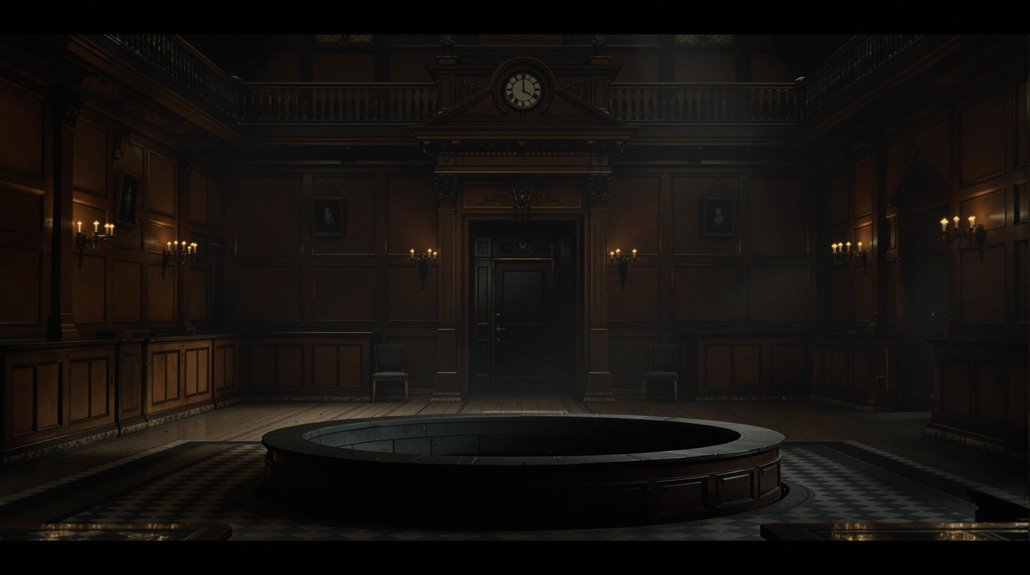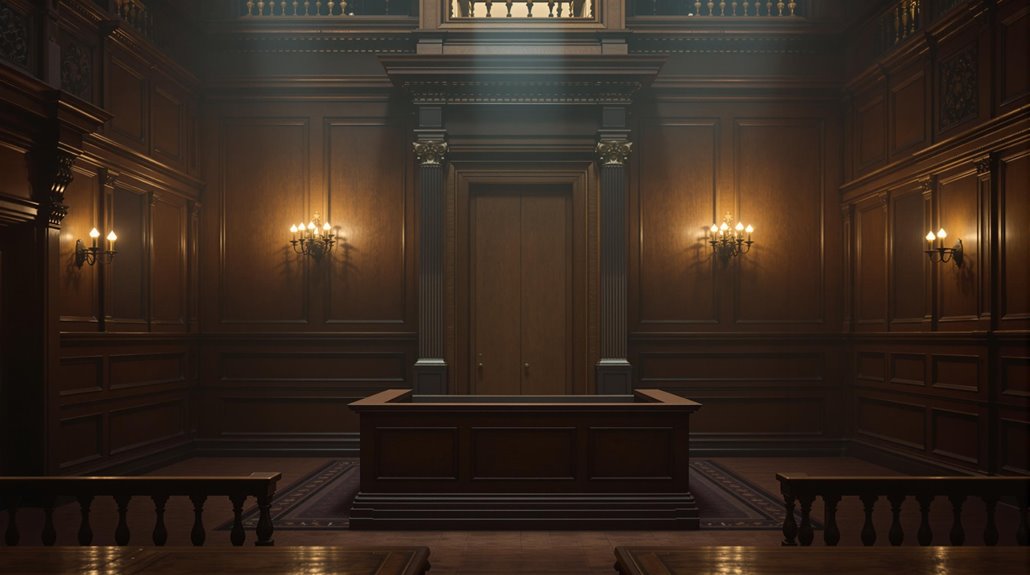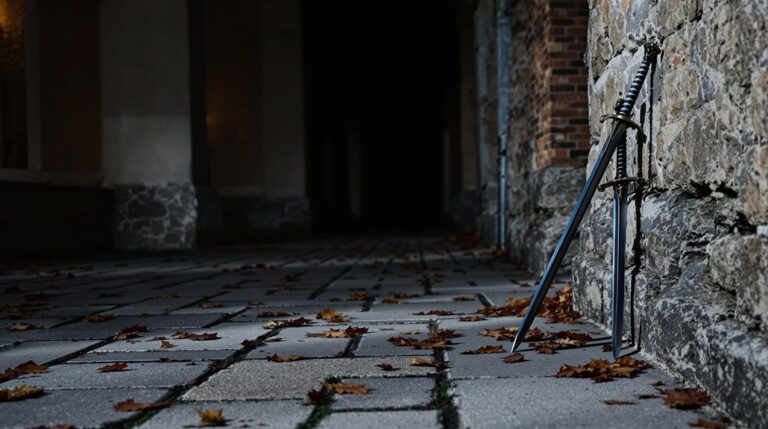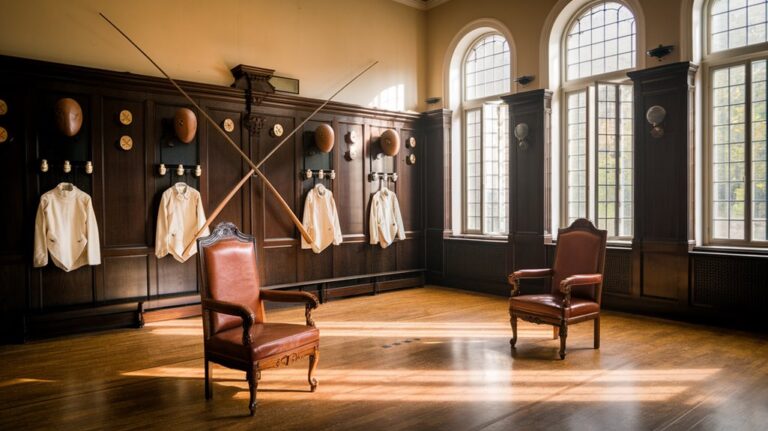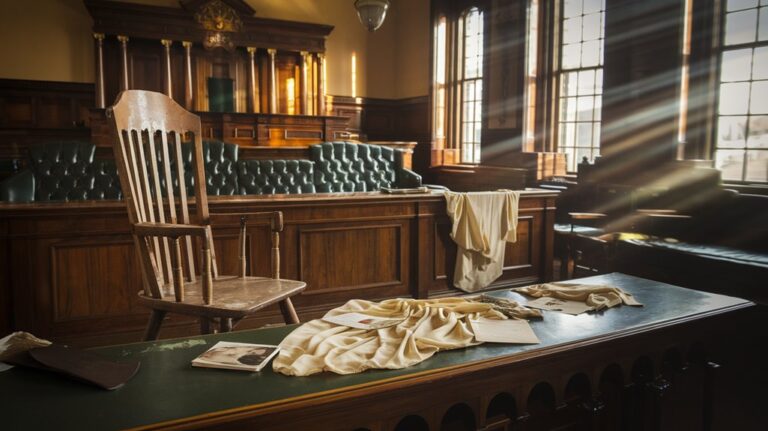The Last Witch in Britain? A Tale of Magic and Miscarriage of Justice
When Winston Churchill called Helen Duncan's 1944 trial "tomfoolery," you'd think the case would've been dismissed immediately. Yet Britain's wartime government pressed forward, charging a middle-aged medium under an antiquated witchcraft law that hadn't seen use in centuries. You're about to discover how a Scottish housewife's claims of supernatural powers collided with national security concerns, sparking a legal battle that would expose the absurdity of prosecuting someone for witchcraft in the modern era.
The Rise of Helen Duncan: From Scottish Psychic to Notorious Medium
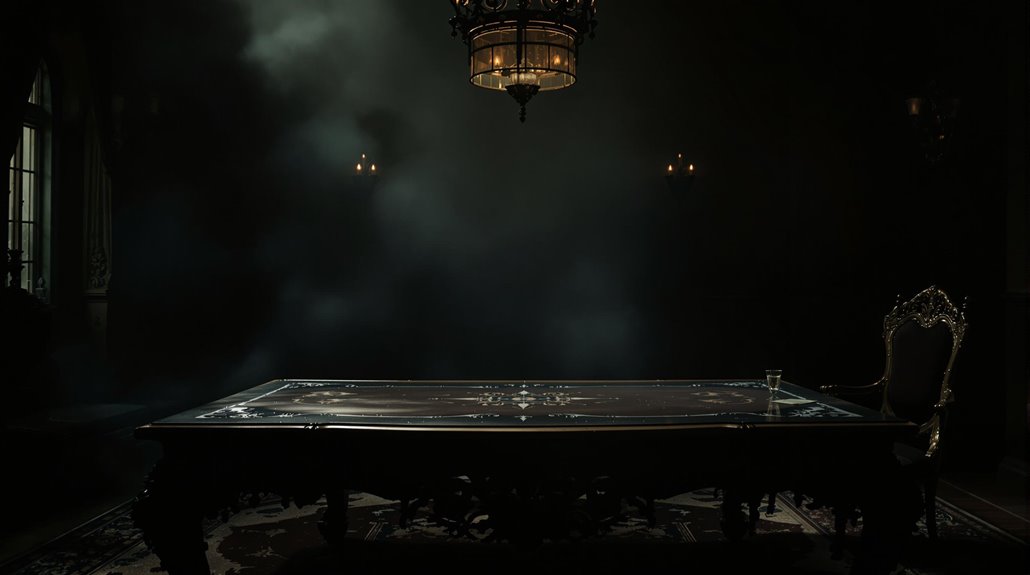
While many self-proclaimed psychics emerged during the early 20th century, few garnered as much attention as Helen Duncan.
Born Victoria Helen McCrae MacFarlane in Scotland, she'd displayed signs of psychic phenomena from her earliest years. After leaving home at 16, she met and married Henry Duncan, claiming they'd shared mutual visions before their first encounter.
Despite struggling to raise six children on a limited income, Helen's spiritual beliefs flourished with her husband's encouragement. She began conducting small séances, which quickly evolved into larger demonstrations where she allegedly produced ectoplasm and manifested spirits. Her dedication to Spiritualism took a heavy toll, as her deteriorating health was often attributed to the demands of her mediumship work.
Her reputation spread as she traveled across Britain, performing in private homes and Spiritualist churches. However, her rising fame also attracted skeptics, leading to investigations and allegations of fraud that would later shape her controversial legacy. In 1931, her claims were put to the test when the London Spiritualist Alliance investigated her for potentially fraudulent activities.
The HMS Barham Mystery: A Wartime Revelation
Helen Duncan's rising prominence took an extraordinary turn during World War II when she became entangled in one of Britain's most sensitive naval secrets.
During a séance in Portsmouth, she revealed details about the Barham sinking – information that was strictly classified at the time. You see, HMS Barham had been struck by three German torpedoes and sank within minutes, claiming 862 lives. The ship went down in just four minutes after sustaining the torpedo hits.
The British Admiralty had purposefully kept this devastating loss under wraps, notifying only the victims' families while swearing them to secrecy. The massive explosion that occurred during the sinking was caught on film, providing chilling evidence of the catastrophe.
Duncan's disclosure of these séance secrets sparked immediate concern among authorities, who couldn't fathom how she'd obtained such closely guarded information.
While German radio had already broadcast claims about the sinking, Duncan's accurate revelation raised suspicions of espionage, ultimately contributing to her infamous prosecution under the Witchcraft Act.
The Old Bailey Trial: When Witchcraft Met World War II
In the midst of World War II, Britain's most famous medium found herself at the center of an extraordinary legal battle at London's Old Bailey.
Helen Duncan faced seven charges under the antiquated Witchcraft Act of 1735, making her case one of the most peculiar witchcraft trials of the modern era.
The seven-day proceedings reflected the tensions of wartime hysteria, with undercover police testifying about séances they'd infiltrated.
Her revelation about the sinking of HMS Barham had particularly alarmed military authorities, as the information was still classified at the time.
Despite historian Alfred Dodd's defense of Duncan's authenticity and Winston Churchill dismissing the case as "obsolete tomfoolery," the judge wouldn't allow her to demonstrate her abilities in court.
The jury found her guilty, leading to a nine-month sentence at Holloway Prison.
Her critics had long exposed her séances as fraudulent, with investigators finding her "ectoplasm" to be made from egg white and chemicals.
You can still hear her anguished cry echoing through history: "I have done nothing; is there a God?"
Behind the Prosecution: National Security or Outdated Laws?
Beneath the surface of Helen Duncan's prosecution lay a complex web of wartime paranoia and legal antiquity.
You'll find it remarkable that authorities chose to dust off the 1735 Witchcraft Act, unused for over a century, rather than rely solely on the more recent 1824 Vagrancy Act for her arrest.
Prior to this case, ecclesiastical courts had traditionally handled matters of alleged magical practices.
This approach echoed how Tudor monarchs had first established witchcraft laws to demonstrate their authority over supernatural matters.
While prosecutors claimed national security concerns after Duncan revealed the HMS Barham's sinking before its official announcement, the case highlighted Britain's oddly outdated legal framework.
You're witnessing a fascinating collision between centuries-old witchcraft laws and modern wartime anxieties.
The timing of her arrest, coinciding with D-Day planning, suggests officials might've feared her alleged abilities could compromise military secrets.
Yet the decision to use antiquated legislation raised questions about whether this was genuine security enforcement or legal overreach.
A Legacy That Changed British Law Forever
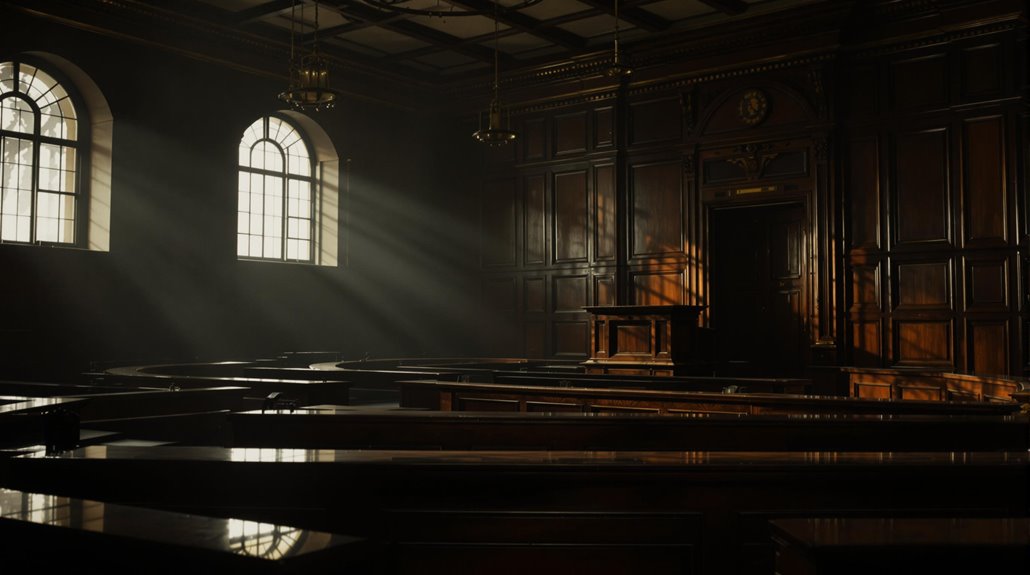
Duncan's trial sparked a chain reaction that forever altered Britain's legal landscape. Her case led to the repeal of the antiquated 1735 Witchcraft Act in 1951, replacing it with the Fraudulent Mediums Act. This witchcraft legacy marked a decisive shift from treating supernatural claims as crimes to addressing them as potential fraud.
You can trace this evolution in legal thinking back to the Enlightenment, when elite circles began questioning supernatural explanations. In fact, Jane Rebecca Yorke became the actual last person prosecuted under the Witchcraft Act in September 1944. The tragic executions of the three poor women in Bideford in 1682 highlighted the devastating consequences of such laws.
The transformation culminated in 2008 when even the Fraudulent Mediums Act gave way to modern Consumer Protection Regulations. These legal reforms reflect Britain's journey from executing accused witches to recognizing historic injustices, as evidenced by Scotland's 2022 formal apology for past persecutions.

